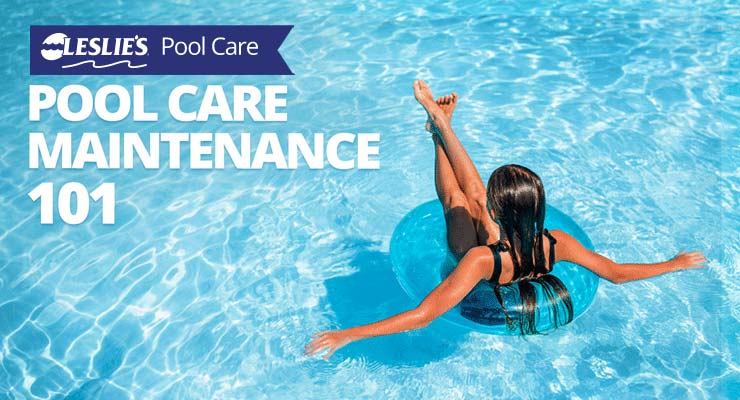
Pool Care 101
Let’s be honest … having a pool is amazing. There’s nothing quite like being able to step outside your back door to take a quick dip, watch your kids enjoy hours of fun with their friends, or simply sit beside the water with a good book. A swimming pool is the centerpiece of your backyard oasis. But keeping your private paradise up to par requires a little bit of work and basic pool care.
Leslie's understands the importance of essential pool care and maintenance, which is why we're here to walk you through every step of caring for your pool. If you need guidance on a particular pool care task, need the necessary chemicals to keep your pool water balanced and healthy, or if you need help getting your pool equipment repaired and operating at full speed, we’re here to help.
So whether you’ve recently moved into a home with a pool, decided to put a new pool in your backyard, or simply decided to finally take the plunge and tackle pool care on your own, your first question likely is: "Where do I start?"
Understanding the basics always helps, so let's begin there. Pool care basics can be broken down into five categories:
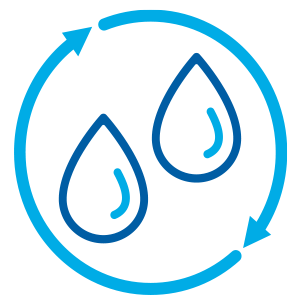
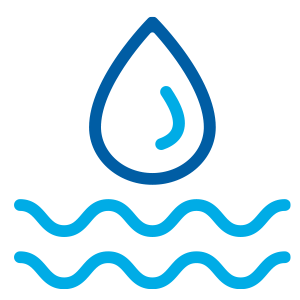
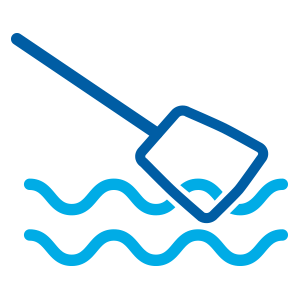
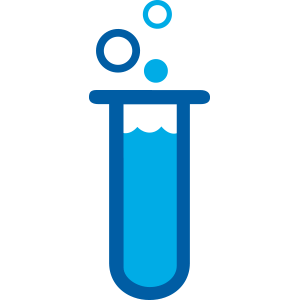
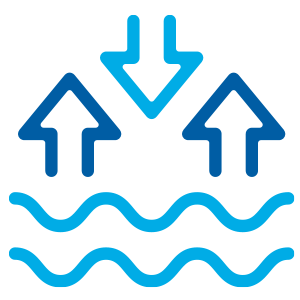
Let's take a quick look at each of the pool maintenance essentials.
1. Circulation
Moving water is healthy water. All properly maintained pools have a pump that circulates water through a filtration system and back into the pool. In an ideal world, your pool pump would run at high speed 24/7. Unfortunately, as it often does, reality has something to say about that.
Running a single speed pump all day would make utility and pool care costs astronomical. A simple rule for operating your single-speed pump is to run it one hour for every 10 degrees (Fahrenheit) of air temperature. So if the average high temperature of a particular time period is 90°, run your pump nine hours per day during that period.
Variable speed pumps will need to run longer, depending on selected speeds. As a result, it’s common to run a variable-speed pump at a higher RPM setting for 3-4 hours and a lower RPM setting for an additional 10-12 hours.
DIY TIP: If you're not sure how long to run the pump in your particular pool, take a look at our blog post, "How To Calculate Pool Pump Run Time."
Pool pumps are available in a variety of options and come at corresponding costs — entailing both the initial investment and the cost of operation. Be sure to ask which one is best for you to ensure proper pool maintenance. In our opinion, purchasing a variable speed pump is the best investment you can make for your pool because they often require less energy output and saving you money, which is never a bad thing!
2. Filtration
Some people believe the filter is the most important piece of pool equipment. Because of this, it’s vital to keep it in good condition for proper pool care.
Since the pool filter is continually removing dirt and debris, it’s recommended to clean or backwash your unit regularly to allow for maximum filtration. This is especially important when your pressure gauge rises 8-10 PSI above the normal clean filter pressure.
DID YOU KNOW? There are three types of pool filters — sand, cartridge, and diatomaceous earth. Each type has its own unique pros and cons, so if you aren’t sure which filter type is best for your pool and lifestyle, stop by your local Leslie's and let us help you out.
Make sure to follow a regular filter maintenance program to keep
your unit working efficiently.
Other tools that help with filtration include skimmers and pump baskets. You should clean these out weekly — or more frequently, depending on what Mother Nature has to say about it.
3. Cleaning
This aspect of pool care one is all on you. We’ve got a variety of helpful tools to help you get the job done, but you’re going to have to supply the necessary elbow grease yourself. We recommend creating a weekly cleaning schedule.
At least once a week, brush your pool’s walls, steps, and floors to remove dirt and debris, and skim the water surface and pool floor to remove leaves and other items. You should also clean out the pump and skimmer baskets regularly. It's also important to manually vacuum dirt and fine debris from the bottom of the pool, or use your pool cleaner to do the job for you.
An automatic pool cleaner significantly cuts down on weekly cleaning time, and some cleaners even brush pool surfaces as they go.
4. Water Testing
The next element of Pool Care 101 is an important one — water testing.
Here’s the good news: it’s easy to do.
To help maintain the chemical health of your pool, you should test at least once a week using test kits or test strips. (When it’s hot out or there are lots of swimmers using the pool, more frequent testing is recommended.)
DID YOU KNOW? You can bring a water sample into your local Leslie's store to get a free AccuBlue® water test. This precise water test looks at 10 different aspects of water chemistry. It also provides you with a customized pool treatment plan that includes detailed instructions.
Follow the instructions that are included with the test kit or test strips. For the highest at-home accuracy, we recommend test kits that use liquid DPD reagents for testing the chlorine levels.
Typical water tests include measurements for Free Available Chlorine (FAC) and Total Available Chlorine (TAC), pH, Total Alkalinity (TA), Calcium Hardness (CH), and Cyanuric Acid (CYA). If your pool has a salt water chlorine generator, also check the salt level during your regular pool care routine.
DIY TIP: When pool or spa water is tested with a DPD test kit, there are three chlorine results that can be determined. Most colorimetric DPD test kits can test for Free Available Chlorine and Total Available Chlorine. Ideally, the Free and the Total Available Chlorine results should be equal.
Regular testing helps you understand how weather, pool usage, and product application affects the water. Maintaining the right water balance through testing provides a safe, sanitary swimming environment, as well as protection for your pool surface and equipment.
5. Water Balance and Sanitization
Once you've got the results from your water test, it's time to apply the appropriate chemicals to balance your pool water. These chemicals include pH, Total Alkalinity, and, if applicable, a Calcium Hardness adjuster. The basic chemicals you need to maintain proper pool care and ensure a healthy and safe pool are a primary sanitizer to kill germs, which includes viruses and bacteria; a weekly shock to keep your chlorine working effectively; and a phosphate removal and enzyme product to prevent algae growth and assist your sanitizer. (Remember, chemical doses are based on the gallons of your pool and your water test results.)
If you bring your water in for free testing at your local Leslie's store, our associates will be able to diagnose any issues and prescribe the ideal amounts of each product to keep your pool healthy and clear.
DIY TIP: When testing your water at home — using test strips or a test kit — you can enter your results in the free Leslie's app. The app will assist you in determining how best to treat your pool water.
Here are the ideal chemical levels for your pool:
- pH level: 7.4-7.6
- Total Alkalinity (TA) level: 80-120 parts per million (ppm)
- Calcium Hardness (CH) level: 200-400 ppm
- Free Available Chlorine (FAC) level: 2.0-4.0 ppm
- Cyanuric Acid (CYA) level: 30-50 ppm
DIY TIP: Need help balancing your pool water? Our comprehensive guide will walk you through the entire process, step-by-step from start to finish. Learn more about water chemistry and become a water balancing expert with our "How To Balance Pool Water" post.
And there you have it. You're now on your way to becoming a pool maintenance master. But you don't have to make the rest of that journey alone. Leslie's is always available for help and support.
It’s also important for us to acknowledge that certain aspects of pool care are subjective, based on personal preference. There are many variations of successful approaches, but we have devoted decades to honing our products and solutions. If you have any questions, call or stop by your nearest Leslie’s store.